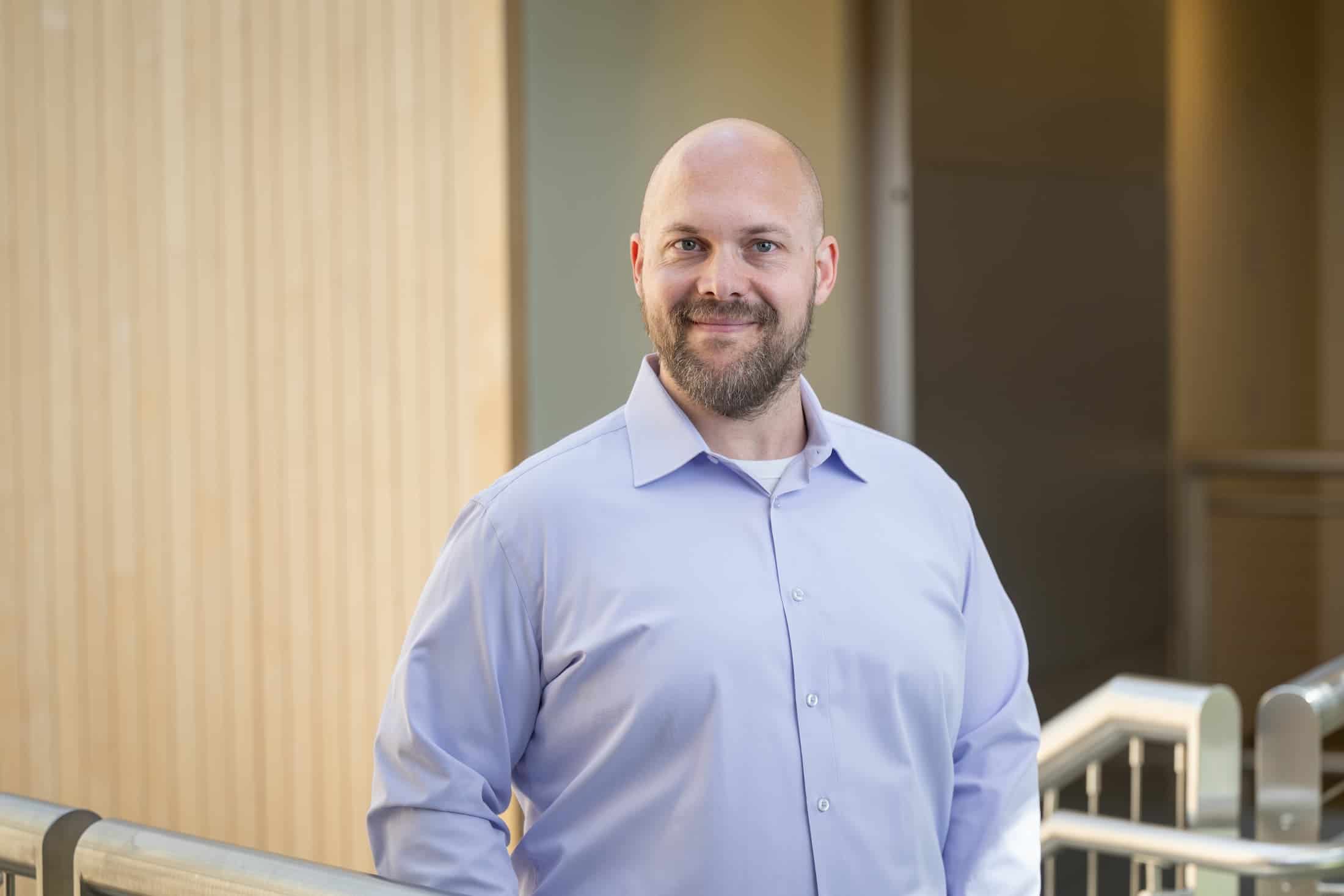Adam Burak, an Assistant Research Scientist in the University of Michigan Nuclear Engineering and Radiological Sciences (NERS) department, has contributed to the University’s governance through his service on the Committee on Oversight of Administrative Action (COAA). His journey in faculty governance is a testament to his passion for social justice and his commitment to ensuring fairness and transparency within the university system.
Burak’s involvement with the COAA began when the Faculty Senate called for volunteers for various committees. Recognizing this as an opportunity to engage in faculty governance, Adam joined COAA.
“I have always been interested in social justice, and defending regular people from organizations, so the opportunity fit my interests well,” said Burak.
This commitment to justice isn’t new for Adam. During his graduate school years, he successfully fought against his local municipality in court, defending homeowners from exploitation. A battle that, while time-consuming and costly, exemplified his dedication to protecting the rights of ordinary people. As he recalled, “Though it cost me a great deal of time and money, I was happy to have hopefully prevented them from doing the same to the next homeowner.”
In his first year on COAA, Burak worked under the leadership of Tom Braun, a professor of biostatistics. The committee tackled several critical issues, including the ability of Work Connections to reject medical exemptions for remote work during the COVID-19 pandemic and discussions surrounding academic freedom.
The group also worked to ensure that accusations of misconduct were taken seriously and appropriately handled. “We tried to figure out a way to make accusations of misconduct harder to sweep under the rug, while still being sensitive to privacy considerations,” said Burak.
During his second year, with medical professor Donald Likosky as Chair, the committee continued its efforts to address harassment and its ability to persist undetected within the university. “We were astounded to find that these reviews go directly to the person being reviewed, and are then deleted soon after… notifying bad actors when someone reported them,” said Burak.
To address this issue, the committee worked with the Administration Evaluation Committee (AEC) to discuss their findings and propose changes. The committee recommended improvements to the review process to ensure that it would genuinely serve as a tool for accountability rather than a notification system for those being reported.
In his third year, Burak was honored to be asked to chair the COAA, a role he approached with humility and determination.
“The first thing I did was to reduce the scope of our charge to something we could handle. It was crucial to prioritize our time so that we could actually accomplish something,” said Burak. He streamlined their focus to two main issues: grievance procedures and bylaws. His deep dive into the grievance process uncovered significant flaws, particularly in how the system was biased against the grievant and lacked enforceable consequences.
“It seemed that the process was very confusing, and slanted heavily against the Grievant. Even if the Grievant prevails, there are no consequences,” said Burak. The committee proposed crucial changes centered around accountability, equality, and transparency, emphasizing that the grievance process should have meaningful outcomes to prevent it from becoming a futile exercise.
“Recently, I was thrilled to hear that some of our ideas had been incorporated into SACUA’s recommendations to the Provost,” said Burak. “Hopefully COAA’s work was helpful to develop some impactful and actionable changes to University policy that will improve the lives of our community members. I would encourage anyone else that wants to shape their University ecosystem to volunteer for, and really engage in, a Faculty Senate Committee. This includes students. We had a student liaison on our committee, and their input was critical to help us shape our ideas. COAA’s valuable recommendations were the result of a committee full of engaged people having open and honest discussions about how we might improve our University, and I feel honored to have participated.”
Senate Assembly Chair Rebekah Modrak personally thanked Burak for his invaluable service, highlighting his role in central faculty governance and encouraging him to continue his participation in the future.
“It is rare for junior research scientists to volunteer their time to support campus-wide discussions,” said NERS Chair Todd Allen. “We applaud Adam for working beyond his research position and helping the University discuss how to improve.”
